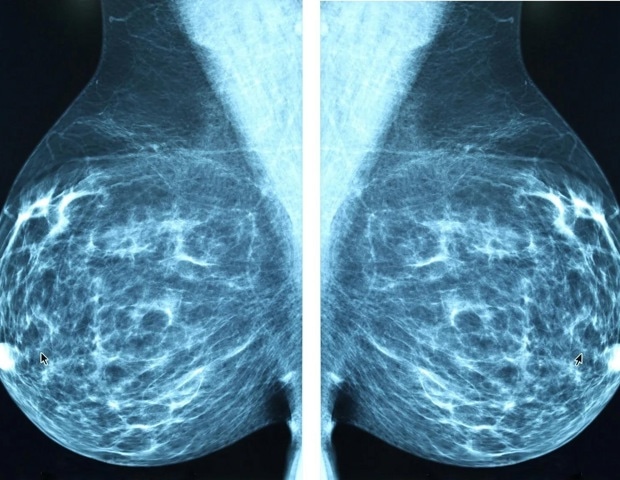Oral cancers with a high risk of recurrence can be identified at an early stage by examining the lymphatic vessels of the tumour. Finnish researchers...
Vous n'êtes pas connecté
- English
- Français
- عربي
- Español
- Deutsch
- Português
- русский язык
- Català
- Italiano
- Nederlands, Vlaams
- Norsk
- فارسی
- বাংলা
- اردو
- Azərbaycan dili
- Bahasa Indonesia
- Հայերեն
- Ελληνικά
- Bosanski jezik
- українська мова
- Íslenska
- Türkmen, Түркмен
- Türkçe
- Shqip
- Eesti keel
- magyar
- Қазақ тілі
- Kalaallisut ; kalaallit oqaasii
- Lietuvių kalba
- Latviešu valoda
- македонски јазик
- Монгол
- Bahasa Melayu ; بهاس ملايو
- ဗမာစာ
- Slovenščina
- тоҷикӣ ; toğikī ; تاجیکی
- ไทย
- O'zbek ; Ўзбек ; أۇزبېك
- Tiếng Việt
- ភាសាខ្មែរ
- རྫོང་ཁ
- Soomaaliga ; af Soomaali
 Maroc - NEWS.MEDICAL.NET - A la Une - 17/01/2025 07:27
Maroc - NEWS.MEDICAL.NET - A la Une - 17/01/2025 07:27
Unveiling the metabolic pathways of Fusobacterium nucleatum in OSCC
A recent study has made significant strides in uncovering how the oral microbiome, particularly the bacterium Fusobacterium nucleatum, plays a crucial role in the progression of oral squamous cell carcinoma (OSCC). By identifying key interactions between this common oral bacterium and host cells, the research has unveiled important metabolic pathways and mechanisms that may serve as potential therapeutic targets.
Articles similaires
Study reveals cellular and metabolic landscape of lymph node metastasis in breast cancer
A recent integrative analysis of single-cell sequencing and single-cell spatial mapping of lymph node metastasis in breast cancer reveals novel...
Unexpected behavior observed during interactions between immune cells and dying cells
Over the years, cell biology has built a detailed picture of how cells compartmentalize their internal functions. Central to this organization is the...
One woman dies every 8 minutes in India from cervical cancer: Oncologist shares 5 critical steps to prevent it
Nearly all cases of cervical cancer are caused by persistent infection with high-risk strains of Human Papillomavirus (HPV). “Nearly all cases of...
Ultra-Endurance Running Accelerates Red Blood Cell Aging
MONDAY, Feb. 23, 2026 -- Ultra-endurance running accelerates red blood cell (RBC) aging through inflammatory and oxidative pathways, according to a...
Ultra-Endurance Running Accelerates Red Blood Cell Aging
MONDAY, Feb. 23, 2026 -- Ultra-endurance running accelerates red blood cell (RBC) aging through inflammatory and oxidative pathways, according to a...
Comparable Progression Risk Seen With Ablation Versus Surgery for T1a Renal Cell Carcinoma
WEDNESDAY, March 4, 2026 -- For patients with stage T1a renal cell carcinoma (T1a RCC), ablation seems to be as effective as resection or...
WELIREG® (belzutifan) Plus LENVIMA® (lenvatinib) Reduced the Risk of Disease Progression or Death by 30% Compared to Cabozantinib in Certain Previously Treated Patients With Advanced Renal Cell Carcinoma (RCC)
This is the first positive Phase 3 trial of a HIF-2 alpha inhibitor in combination with a multi-targeted tyrosine kinase inhibitor, the first for...
WELIREG® (belzutifan) Plus LENVIMA® (lenvatinib) Reduced the Risk of Disease Progression or Death by 30% Compared to Cabozantinib in Certain Previously Treated Patients With Advanced Renal Cell Carcinoma (RCC)
This is the first positive Phase 3 trial of a HIF-2 alpha inhibitor in combination with a multi-targeted tyrosine kinase inhibitor, the first for...
Chinese scientists build ‘ultra-stable’ polymer solar cell with 19.1% efficiency
The polymer solar cell is able to retain 97% of its performance after 2,000 hours in air. By blending small-molecule acceptors into polymeric...
Les derniers communiqués
-
Evergreen Elevate Heads to Australia to Empower MSPs with Valuable Strategies and Insights on Better M&A Practices
Evergreen Elevate - 29/07/2025



